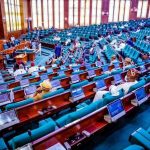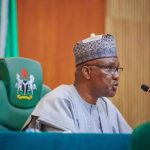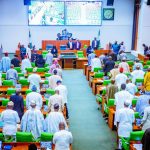The Chairman of the Presidential Fiscal Policy and Tax Reforms Committee, Taiwo Oyedele, has urged the implementation of tax reform bills by mid-2025, emphasizing that Nigeria’s current tax system is stifling economic growth. Speaking at the Annual Roundtable Summit organized by the CEO’s Group of the Covenant Community Groups in Lagos, Oyedele warned that without timely reforms, the country risks economic instability similar to Zimbabwe’s hyperinflation crisis.
In his keynote address, titled “May Nigeria Work for Me”, Oyedele stressed that economic improvement drives increased government revenue, not the other way around. He highlighted the need for inclusive reforms that address income and inflation disparities to ensure all Nigerians benefit.
Oyedele criticized Nigeria’s outdated tax system, likening it to “running a race in a 1960s car against Ferraris.” He recounted how fuel subsidy policies drained national resources, with the Nigerian National Petroleum Corporation (NNPC) exhausting equity crude, profit oil, and tax oil to fund subsidies, leaving the country on the brink of an economic meltdown.
Expressing optimism, Oyedele forecasted reduced inflation, stable exchange rates, and increased industrial output driven by reforms in key sectors. He urged Nigerians to shift from speculative behavior to productive investments, calling for a collective effort from public and private sectors to curb illicit foreign exchange practices.
“Our reforms are designed to reduce pressure on monetary authorities and ensure stability. We are turning the corner, and 2025 will mark the beginning of a new era,” Oyedele said.
He also proposed initiatives to drive human capital development, such as interest-free education loans, consumer credit systems, and skills development programs. Stressing the importance of accessible and practical education, he criticized the current academic focus as irrelevant to societal needs.
“Parents cannot afford education, and professors earning N400,000 a month cannot deliver quality teaching. Interest-free loans and stipends for underprivileged students will ensure inclusivity and hope,” Oyedele said, adding that better salaries for lecturers would attract top talent and strengthen the education system.
To promote local industries, Oyedele advocated for consumer loans tailored to support the purchase of locally manufactured goods, such as vehicles, and enable Nigerians to own homes through flexible repayment plans.
“Why work for 35 years to build a house when consumer credit can allow you to live in one and pay over time? This is how we grow an economy,” he noted.
As Nigeria prepares for reforms, Oyedele’s vision underscores the urgency of tackling structural inefficiencies while fostering an inclusive, stable, and sustainable economic future.










